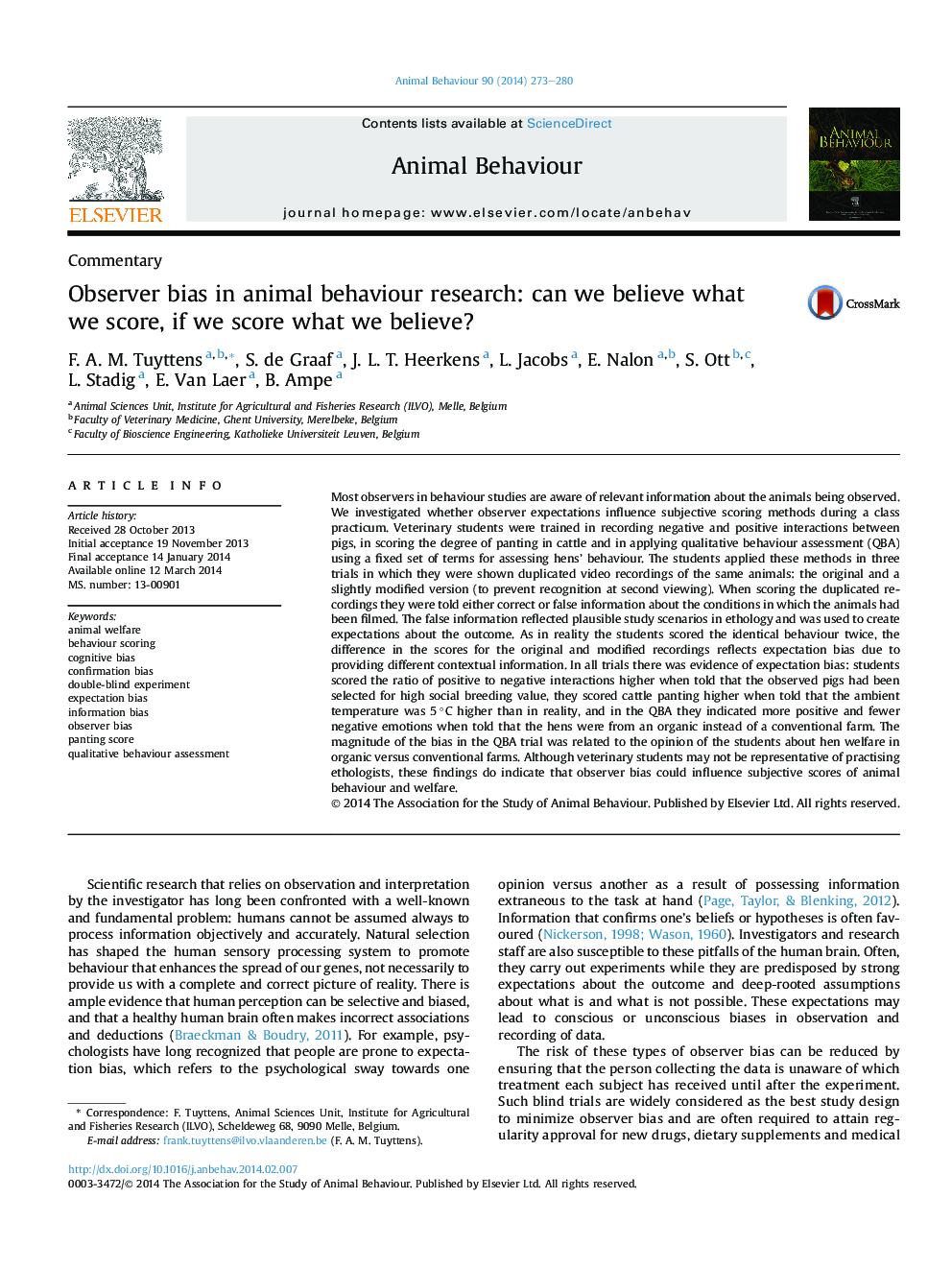| کد مقاله | کد نشریه | سال انتشار | مقاله انگلیسی | نسخه تمام متن |
|---|---|---|---|---|
| 2416408 | 1552238 | 2014 | 8 صفحه PDF | دانلود رایگان |
• Blinding observers is not common in ethology.
• Subjective scoring methods are commonly used in ethology.
• Expectation bias during subjective outcome assessments was demonstrated.
• Observer expectations may invalidate subjective recordings of behaviour.
Most observers in behaviour studies are aware of relevant information about the animals being observed. We investigated whether observer expectations influence subjective scoring methods during a class practicum. Veterinary students were trained in recording negative and positive interactions between pigs, in scoring the degree of panting in cattle and in applying qualitative behaviour assessment (QBA) using a fixed set of terms for assessing hens' behaviour. The students applied these methods in three trials in which they were shown duplicated video recordings of the same animals: the original and a slightly modified version (to prevent recognition at second viewing). When scoring the duplicated recordings they were told either correct or false information about the conditions in which the animals had been filmed. The false information reflected plausible study scenarios in ethology and was used to create expectations about the outcome. As in reality the students scored the identical behaviour twice, the difference in the scores for the original and modified recordings reflects expectation bias due to providing different contextual information. In all trials there was evidence of expectation bias: students scored the ratio of positive to negative interactions higher when told that the observed pigs had been selected for high social breeding value, they scored cattle panting higher when told that the ambient temperature was 5 °C higher than in reality, and in the QBA they indicated more positive and fewer negative emotions when told that the hens were from an organic instead of a conventional farm. The magnitude of the bias in the QBA trial was related to the opinion of the students about hen welfare in organic versus conventional farms. Although veterinary students may not be representative of practising ethologists, these findings do indicate that observer bias could influence subjective scores of animal behaviour and welfare.
Journal: Animal Behaviour - Volume 90, April 2014, Pages 273–280
